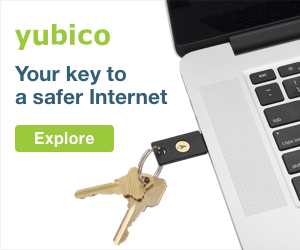Do you hate remembering passwords? Soon, you may be able to forget them
For years, we’ve relied on a secret we share with a computer to prove we are who we say we are. But passwords are easily compromised through a phishing scam or malware, data breach or some simple social engineering. Once in the wrong hands, these flimsy strings of characters can be used to impersonate us all over
Slowly, we’re kicking the password habit. With data breaches costing billions, the pressure is on to find more foolproof ways to verify
“We are moving into a world which we’re calling passwordless, which is the ability for our applications, devices and computers to recognize us by something other than the old-fashioned password,” says
Newer forms of identification are harder to imitate; something we are
Intuit, for example, lets users sign into its mobile apps with a fingerprint or facial recognition or their phone’s passcode instead of a password. Your fingerprint or screen lock can access some Google services on Pixel and
Goerlich estimates that within five years, we could be logging into most of our online accounts the same way we unlock our phones. And then we will be able to finally break up with passwords
What will replace them? That’s a bit
Any system that depends on a single factor isn’t secure enough, according to
Balasubramaniyan predicts several pieces of information will be used to verify identity. Machines will analyze our speech patterns or scan our fingerprints. We’ll also be identified by something we have
If that seems more invasive than sharing some random bits of knowledge such as our mother’s maiden name or a
“It’s going to be scary,” he says, but, “it’s time for consumers to demand a higher level of privacy
Password overload

Secret words to tell friend from foe have been around since ancient times and, in the early days of the internet, they made a lot
We started out with just a handful of passwords to access our email, a few
And every time we clicked a link or downloaded an app, we had to come up with another password. As even more devices connected to the internet, from home surveillance systems to thermostats, we hit
Today, people have an average of
But data breaches keep proliferating. So, we’re told to conjure up stronger passwords, the longer and more random the better
Turns out the only fans of passwords are hackers and identity thieves. Even researcher
Corbató told the
“Passwords are a
Are we really over passwords?
Will passwords finally go the way of the eight-track tape? For years, reports of their demise have been greatly exaggerated. Tech leaders have dangled but never delivered on promises to
“There is no doubt that, over time, people are going to rely less and less on passwords,” Microsoft’s billionaire founder
So, what’s taking so long? Too many options being floated and too little consensus on what will
Companies, eager for our eyeballs and our business, are holding out for solutions that strike a balance between convenience and security. With security costs skyrocketing and consumer trust flailing, the industry is under growing pressure to lock down our accounts, security experts say. By 2023, 30% of organizations will use at least one form of authentication that does not involve a password, a significant increase from the 5% today, according to research
One of the major proponents of a password-free world is the FIDO Alliance, which stands for Fast Identity Online. The consortium of heavyweights from Google to Microsoft is developing technical standards to verify identity. Apple recently joined the FIDO Alliance, giving the group even
We can’t ditch passwords overnight, but, according to
“Businesses are feeling these pain points and they are being pushed to come up with solutions that are not dependent on the old ways of authenticating,”
That the industry is working arm in arm on solutions is “really unprecedented,” Shikiar says. “This sort of collaboration is a very good sign that, not only is there a way to go past passwords, there is
At Datum Consulting, we’re

